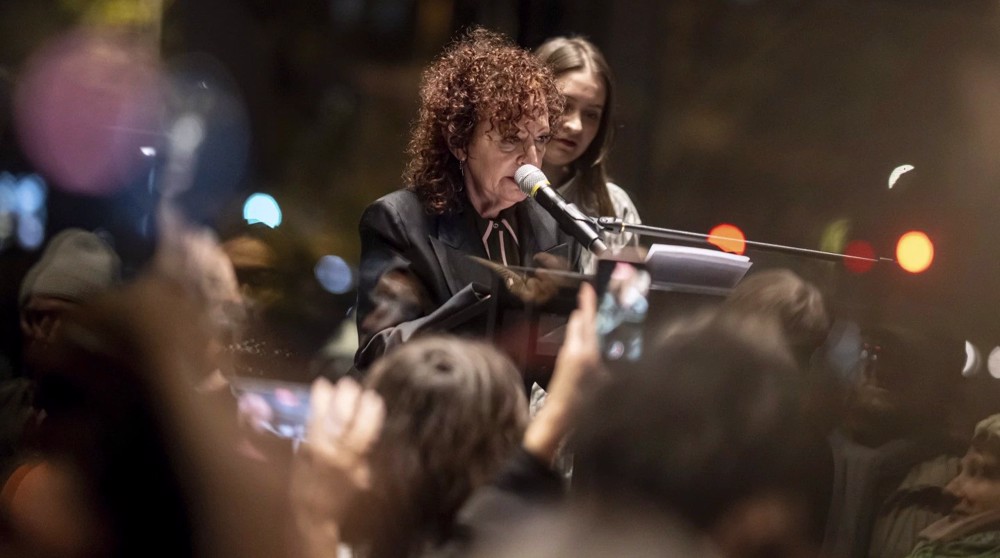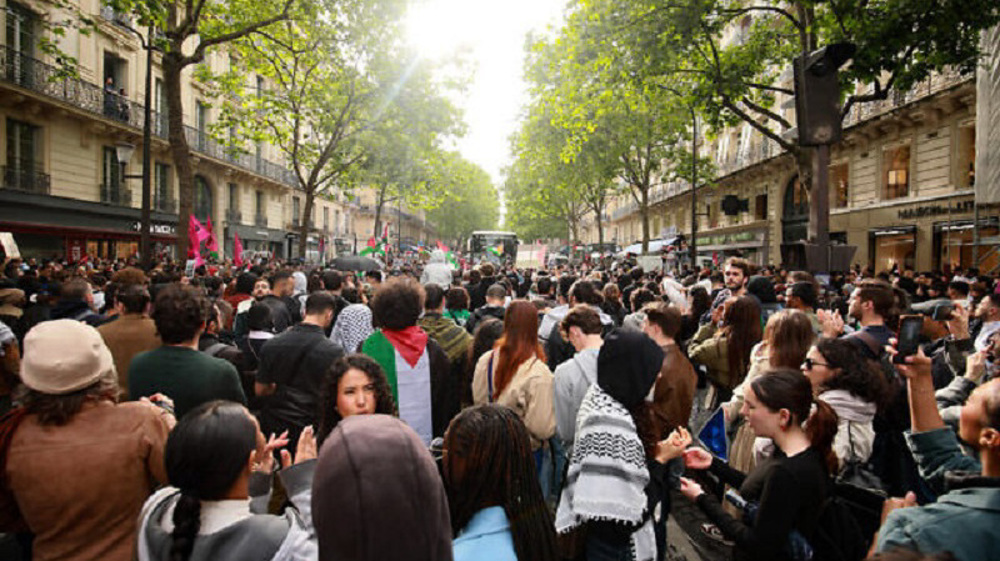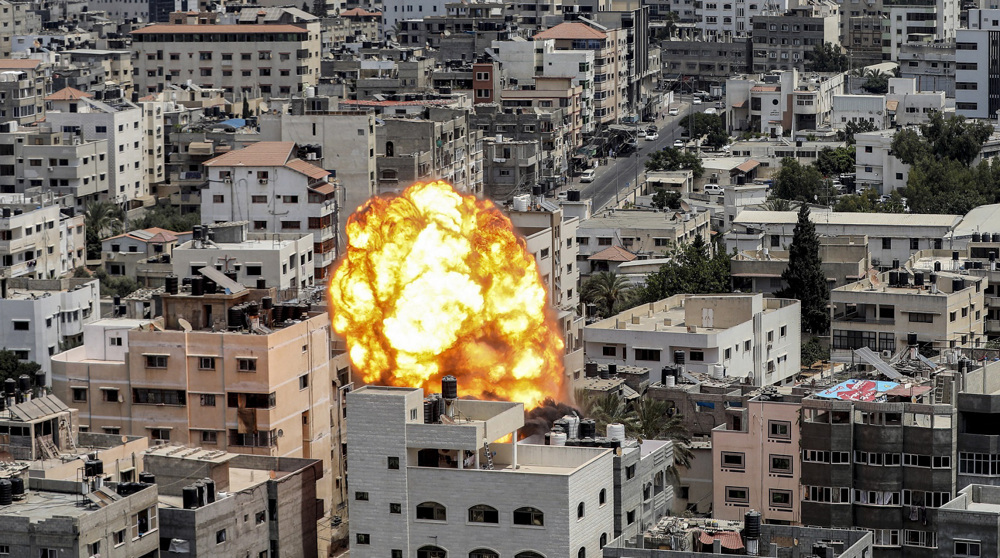Israel strikes residential buildings in Gaza, leaving over 100 people homeless
Israeli warplanes have struck two residential buildings in Gaza City, displacing the occupants and injuring more than a dozen people.
The Saturday strike is part of the latest episode of Israeli brutality against the blockaded enclave.
In a report on Saturday, Palestine’s official Wafa news agency said a three-story building in Sheikh Ijjilin neighborhood was targeted. The strike came minutes after the residents were purportedly notified by Israeli authorities through a phone call to leave their homes.
Furthermore, an Israeli drone demolished a multi-story building in the city after firing several missiles.
According to the report, at least 13 people, mostly children, were injured on Saturday.
Separately, Israeli warplanes attacked positions in Khan Yunis, south of the Gaza Strip, wounding an unspecified number of people and inflicting heavy damage on property and causing panic among residents, mainly children.
On Friday, deadly Israeli airstrikes on a residential area in the besieged strip resulted in the killing of twelve people, including Tayseer al-Jabari, a senior commander of the Islamic Jihad movement, and a five-year-old child.
The death toll reached 13 on Saturday, when an Israeli warplane attacked a car in Beit Hanoun, in northern Gaza, killing a woman, Wafa said.
In a separate report, Wafa, citing the Palestinian Energy Authority, said Gaza’s only power plant shut down at noon on Saturday as a result of the ongoing Israeli strikes against the enclave and shortage of fuel.
The authority said in a statement the decision to shut down the plant was taken due to the current situation and the inability of the company running the power plant to supply the fuel needed to keep it running because of the Israeli blockade and week-long closure of the commercial crossing with the enclave.
Palestinians living in Gaza are hit by regular blackouts as a result of fuel shortages with electricity being provided for less than 12 hours a day. Power supply deficit in the coastal enclave is over 75 percent, which could cripple all aspects of life there.
Israel broadened its offensive against Islamic Jihad on Saturday as the regime’s authorities and security forces began a campaign of arrests in the occupied territories.
In a statement on Saturday, cited by Lebanon's al-Mayadeen channel, the Israeli military said the regime’s internal security service – known as Shin Bet – had arrested 20 Palestinians in the early hours of the day during raids in the occupied West Bank, claiming that “19 of them are Islamic Jihad” movement.
Palestinian resistance factions in the Jenin refugee camp announced in a joint statement at dawn on Saturday that in response to the ongoing aggression on Gaza, “all roads to Israeli settlements will be under the Resistance’s fire, and the movement of Israeli settlers within the occupied West Bank will be restricted.”
The factions further warned the regime against committing any other folly against Gaza, renewing their commitment to continue the path of resistance.
The latest escalation in Gaza was triggered by Israel’s detention earlier this week in the West Bank of Bassem al-Saadi, a key Islamic Jihad member that the Tel Aviv regime accused of orchestrating a spate of attacks.
Israel said on Saturday it is preparing for its aerial operation in Gaza to last a week, saying there are currently no discussions on a ceasefire with Islamic Jihad. The military “is preparing for the operation to last week" and is "not currently holding ceasefire negotiations,” it said.
Furthermore, Israeli M109 Howitzers and soldiers prepare equipment on the border with the blockaded enclave.
The Gaza Strip has been under an Israeli blockade since 2007, when Hamas resistance movement took control of the coastal enclave.
The siege has caused severe hardship to residents. Poverty rate among Gaza’s population has reached 53 percent, while “extreme poverty” stands at 33.8 percent, according to statistics by the Palestinian Central Bureau of Statistics (PCBS).
About 68 percent of families do not have enough to eat, while 80 percent of Gazans are dependent on aid. The area’s unemployment rate stands at 45.1 percent, according to PCBS.
The important of Venezuela for Iran
Iran beats traditional rival Russia in freestyle and Greco-Roman wrestling friendly
Rape trials trigger protests against French ‘sexist and misogynistic’ culture
US photographer opens Berlin exhibition with anti-Israel speech
VIDEO | Press TV's News Headlines
VIDEO | US 'non-profit killer’ bill targets pro-Palestinian groups
Explainer: How Yemeni military chased away US aircraft carrier from Red Sea?
French march for women of Palestine










 This makes it easy to access the Press TV website
This makes it easy to access the Press TV website